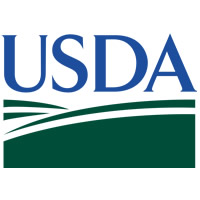

Successful implementation of IoT technologies requires a strategic approach, ongoing monitoring and continuous improvement. Here’s how to get started.

Successful implementation of IoT technologies requires a strategic approach, ongoing monitoring and continuous improvement. Here’s how to get started.

The game-changing potential of IoT asset tracking in enhancing safety and traceability across the supply chain.

The agency’s laboratory system plans to implement a new quantitative method for veterinary drug residue analysis in bovine muscle samples on October 1, 2023. In addition, USDA FSIS is updating three additional quantification testing methods for fat, salt and screening of beta-antagonists.

“We are excited to have Alfonso on board as a part of our growing Kiwa-ASI family. His vast industry knowledge and experience will be crucial as we work to continuously improve and expand our existing certification programs.”

“Frank is a visionary in the food supply chain, using his insight, knowledge and passion for innovation to enhance food safety and safeguard public health. We are excited to welcome him to the iFoodDS board of directors.”

The USDA Food Safety and Inspection Service (FSIS) has launched a new feature on its website that enables software developers to access data on recalls and public health alerts through an application programming interface (API). Through this new tool, developers can leverage FSIS recall data to create new products for consumers or incorporate them into existing digital services and mobile apps.

There are several options to highlight your use of organic ingredients, but you must understand the regulations surrounding each option to avoid running afoul of USDA labeling regulations.

The Interagency Food Safety Analytics Collaboration (IFSAC)—a collaboration between the CDC, FDA and USDA FSIS—cites Campylobacter, non-O157 Shiga toxin-producing Escherichia coli (STEC) and refining foodborne illness source attribution estimates as its priorities for the next five years.

The FDA and Stop Foodborne Illness are hosting a complimentary webinar, “Facing Food Safety Challenges through Culture and Persistence,” on September 13. The event is the eighth webinar in the ongoing food safety culture series developed for industry professionals.

The challenge of complete supply chain compliance from one end of the spectrum to the other warrants cooperation across many lines: state, national, linguistic, cultural and economic to name a few. The need for intuitive solutions and an easy to implement process is paramount.